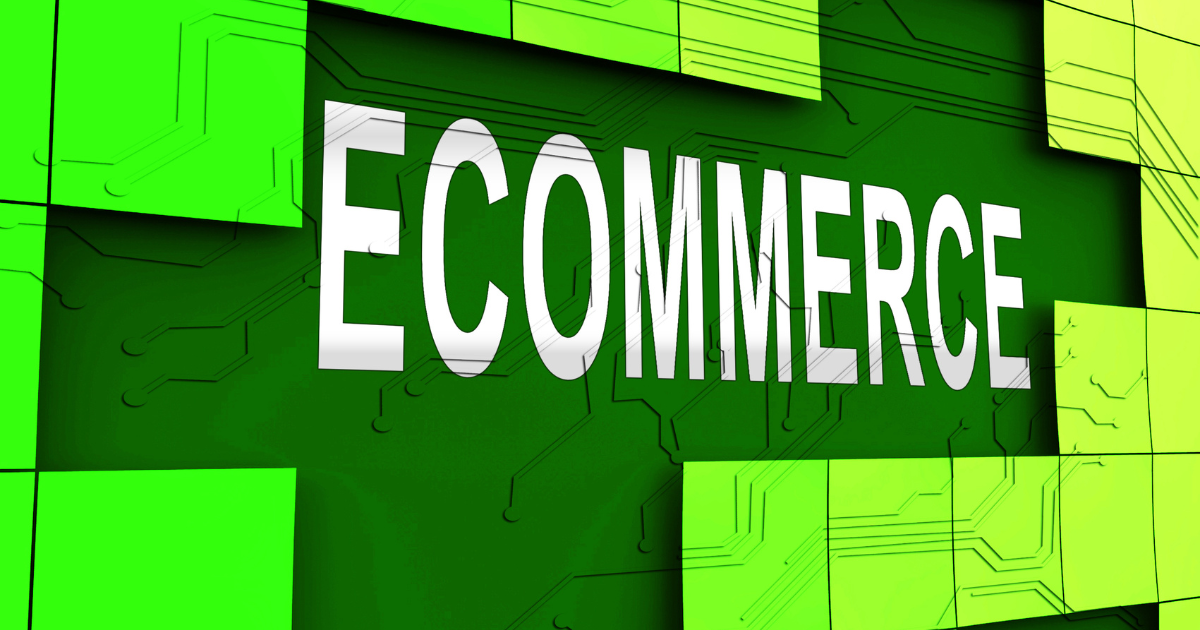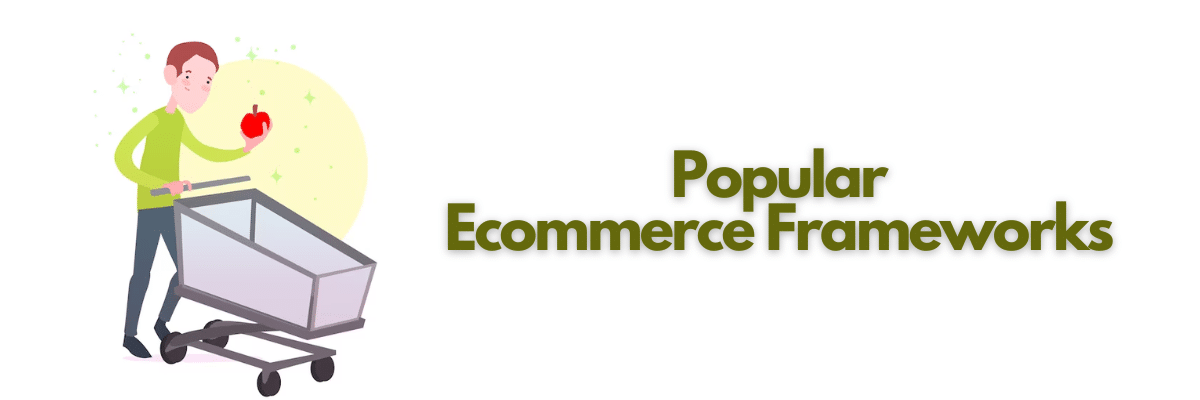Ecommerce Frameworks Compared: Which One is Right for Your Business?
Looking to launch an online store? You need an ecommerce framework that can handle the complexities of modern-day retail. From managing inventory to processing payments, your ecommerce platform is the backbone of your online business.
Ecommerce has become an essential part of the modern business landscape, with more and more consumers turning to online shopping for their purchases. As a result, businesses need to have a strong online presence to remain competitive.
But with so many options available, how do you choose the right one? Fear not, we’ve got you covered. In this blog, we’ll take a deep dive into the world of ecommerce frameworks, analyzing the strengths and weaknesses of some of the most popular options out there.
By the end of this article, you’ll be armed with the knowledge you need to select the perfect ecommerce framework for your online store. So, let’s dive in!
Table of Contents
- What is an Ecommerce Framework?
- Types of Ecommerce Frameworks
- Key Factors to Consider When Choosing an Ecommerce Framework
- Popular Ecommerce Frameworks
- Detailed Comparison of Ecommerce Frameworks
- Recommendations for Different Types of Businesses
- Final Thoughts and Advice
- Frequently Asked Questions
What is an Ecommerce Framework?
Ecommerce framework refers to the software platform that powers an online store, providing the necessary functionality to manage products, process payments, and handle shipping and logistics. Essentially, an ecommerce framework is the backbone of an online retail and business model.
At its core, an ecommerce framework provides a set of tools and features to create an online store, manage the store’s inventory, process transactions, and track sales and performance metrics.
These tools typically include a content management system (CMS) to manage product listings, a shopping cart system to handle purchases and payments, and shipping and logistics management tools to handle order fulfillment.
Ecommerce frameworks also offer a range of customization options, allowing businesses to tailor the look and feel of their online store to their branding and aesthetic preferences.
Many frameworks also offer integrations with third-party marketing tools, and services, such as payment processors, shipping providers digital experience platforms, and marketing automation software.
Overall, ecommerce frameworks are essential for any business looking to establish a presence in the world of online retail. With the right ecommerce web development platform in place, businesses can effectively manage their online store and provide customers with a seamless shopping experience.
Types of Ecommerce Frameworks
Ecommerce frameworks come in many shapes and sizes, and the type of framework you choose will depend largely on the specific needs of your business.
Here are some of the most common types of ecommerce frameworks:
Open-Source Ecommerce Frameworks
Open-source ecommerce frameworks are platforms whose source code is available for free and can be modified and customized by anyone. These e commerce frameworks are typically community-driven, meaning that a community of developers and users contribute to the development of the platform.
Some popular open-source ecommerce frameworks include Magento, WooCommerce, and PrestaShop. These best ecommerce frameworks are often highly customizable, allowing businesses to tailor the platform to their specific needs. They also offer a wide range of plugins and extensions, providing additional functionality to the core platform components.
One advantage of open-source ecommerce frameworks is their affordability, as the platform itself is free to use. However, businesses will still need to invest in hosting, development, and maintenance costs, which can add up over time.
Hosted Ecommerce Platforms
Hosted ecommerce platforms, also known as Software as a Service (SaaS) platforms, are fully managed solutions provided by a third-party provider. These platforms offer a range of features and functionality, including web hosting, security, and support dedicated ecommerce backend.
Some popular hosted ecommerce platforms include Shopify, BigCommerce, and Volusion. These platforms are typically user-friendly, with a range of pre-built templates and themes available to choose from. They also handle most of the technical aspects of an ecommerce site, such as updates and maintenance, allowing businesses to focus on selling their products.
One advantage of hosted ecommerce platforms is their ease of use, as businesses can quickly launch their online store without needing extensive technical knowledge. However, they may be less customizable than open-source frameworks, and businesses may be limited in terms of which features they can add to their store.
Custom-Built Ecommerce Frameworks
Custom-built ecommerce frameworks are platforms that are built specifically for a business’s unique needs. These countless ecommerce frameworks are typically developed by a team of developers and can be highly customized and tailored to the business’s specific requirements.
One advantage of custom-built ecommerce frameworks is their flexibility, as businesses can create a platform that is uniquely suited to their needs. However, they can be expensive and time-consuming to develop, and businesses may need to hire a team of developers to build and maintain the platform.
Key Factors to Consider When Choosing an Ecommerce Framework

Choosing the right ecommerce framework is an important decision for any business looking to sell products online.
Here are some key factors to consider when selecting an ecommerce framework:
1. Scalability
Scalability refers to the ability of an ecommerce platform to grow and handle increasing traffic and transactions over time. Businesses should look for a platform that can handle their current needs while also having the ability to scale as their business grows.
2. Customization
Customization is an important factor for businesses that require a platform that can be tailored to their specific needs. Open-source frameworks like Magento offer high levels of customization, while hosted platforms like Shopify may be more limited in terms of customization options.
3. Cost
The cost of an ecommerce framework can vary significantly depending on the type of platform and the features included. Businesses should consider not just the initial setup cost, but also ongoing maintenance and development costs.
4. Security
Security is critical for any ecommerce platform, as it involves handling sensitive customer information such as credit card details. Businesses should look for a platform that has robust security features, such as SSL encryption, two-factor authentication, and regular security updates.
5. User Experience
The user experience is an important consideration for any ecommerce platform, as it directly impacts how customers interact with the website. Businesses should choose a platform that provides a user-friendly experience for customers, with easy navigation, intuitive product pages, and a streamlined checkout process.
6. Integration
Integration with other systems and tools is important for enterprise businesses, that require a seamless flow of data between different applications. Businesses should look for a platform that integrates with their existing systems, such as inventory management software or accounting tools.
7. Mobile Responsiveness
Mobile commerce continues to grow, with more and more customers using their mobile devices to shop online. Businesses should choose an ecommerce website development framework that provides a mobile-responsive design, allowing customers to easily browse and purchase products on their mobile devices.
8. SEO Optimization
Search engine optimization (SEO) is critical for driving traffic to an ecommerce website. Businesses should choose an ecommerce framework that offers strong SEO optimization capabilities, such as the ability to customize meta tags, URLs, and page titles.
9. Payment and Shipping Options
The ability to offer multiple payment and shipping options is important for businesses that want to provide a seamless customer experience. Businesses should choose an ecommerce framework that supports a wide range of payment and shipping options, including popular options like PayPal and USPS.
10. Customer Support
Good customer support is essential for any ecommerce platform, as it can impact customer satisfaction and loyalty. Businesses should choose an ecommerce framework or free platform that offers reliable and responsive customer support, with options for email, phone, and live chat support.
11. Analytics and Reporting
Analytics and reporting tools are important for tracking key metrics such as website traffic, conversion rates, and customer behavior. Businesses should choose an ecommerce framework that provides robust analytics and reporting capabilities, allowing them to make data-driven decisions to improve their online sales.
Popular Ecommerce Frameworks
There are many ecommerce frameworks available, each with its own set of features and benefits. Here are some of the most popular ecommerce frameworks used by businesses today:
Shopify
Shopify is a hosted ecommerce platform that offers a range of features and tools for creating and managing an online store. It is known for its user-friendly interface and easy setup process, making it a popular choice for small to medium-sized businesses.
WooCommerce
WooCommerce is an open-source ecommerce platform that integrates with WordPress, allowing businesses to create an online store using the popular CMS. It offers a range of extensions and themes for customization and is well-suited for businesses with WordPress development experience.
Magento
Magento is an open-source ecommerce platform that offers high levels of customization and scalability. It is well-suited for large businesses that require a platform with advanced features, such as multi-store management and complex pricing structures.
BigCommerce
BigCommerce is a hosted ecommerce platform that offers a range of features for creating and managing an online store. It is known for its scalability and flexibility, making it a popular choice for businesses that require a platform that can grow with their needs.
OpenCart
OpenCart is an open-source ecommerce platform that offers a range of features for creating and managing an online store. It is well-suited for businesses with a smaller product catalog and limited customization needs.
PrestaShop
PrestaShop is an open-source ecommerce platform that offers a range of features and themes for creating and managing an online store. It is well-suited for businesses with a smaller product catalog and a focus on international sales, as it supports multiple languages and currencies.
Each of these popular ecommerce frameworks has its own strengths and weaknesses, and the right choice will depend on the specific needs and goals of the business. By carefully evaluating the features and benefits of each platform, businesses can select an ecommerce framework that meets their unique requirements and supports their growth over time.
Detailed Comparison of Ecommerce Frameworks
When it comes to selecting an ecommerce framework, businesses have many options to choose from, each with its own set of features and benefits. To make an informed decision, it is important to compare the most important aspects of each platform.
Here is a detailed comparison of some of the most popular ecommerce frameworks:
Shopify
- Pricing: Monthly subscription starting at $29 per month, with additional fees for transaction processing and third-party apps.
- Features: User-friendly interface, easy setup, extensive app store for customization, mobile-responsive design, built-in SEO optimization, 24/7 support.
- Strengths: User-friendly interface, easy to set up, extensive app store for customization, excellent customer support.
- Weaknesses: Limited control over server and code, limited flexibility for advanced customization.
WooCommerce
- Pricing: Free to download, but requires a WordPress website and additional costs for hosting, premium themes, and plugins.
- Features: Integrates with WordPress, extensive library of plugins and themes, mobile-responsive design, SEO optimization, customizable checkout.
- Strengths: Customizable and flexible, excellent for businesses with WordPress experience, extensive community support.
- Weaknesses: Requires WordPress hosting, can be complex for beginners, limited customer support.
Magento
- Pricing: Community edition is free to download, but requires hosting and development costs for customization. Enterprise edition pricing varies.
- Features: Highly customizable, scalable, multi-store management, advanced pricing options, mobile-responsive design, SEO optimization.
- Strengths: Highly customizable and scalable, advanced features for large businesses, extensive community support.
- Weaknesses: High development and maintenance costs, can be complex for beginners.
BigCommerce
- Pricing: Monthly subscription starting at $29.95 per month, with additional fees for transaction processing and advanced features.
- Features: Scalable, mobile-responsive design, extensive app store for customization, SEO optimization, abandoned cart recovery.
- Strengths: Scalable and flexible, excellent for growing businesses, user-friendly interface.
- Weaknesses: Limited customization options for advanced users, fees for additional features.
OpenCart
- Pricing: Free to download, but requires hosting and development costs for customization.
- Features: Easy to use, mobile-responsive design, multi-store management, SEO optimization.
- Strengths: Easy to use, extensive customization options, affordable for small businesses.
- Weaknesses: Limited customer support, requires technical knowledge for advanced customization.
PrestaShop
- Pricing: Free to download, but requires hosting and development costs for customization.
- Features: Easy to use, mobile-responsive design, multi-language and currency support, SEO optimization.
- Strengths: Easy to use, excellent for businesses with a global presence, extensive customization options.
- Weaknesses: Limited customer support, requires technical knowledge for advanced customization.
By comparing the pricing, features, strengths, and weaknesses of each ecommerce framework, businesses can select the one that best meets their specific needs and goals. It is important to consider factors such as scalability, customization, and support when making a decision, as these will impact the success and growth of the online store over time.
Recommendations for Different Types of Businesses
Choosing the right ecommerce framework is crucial for the success of any online business. Based on the needs and goals of different types of businesses, here are some recommendations for selecting the best ecommerce framework:
Small Businesses
For small businesses with limited technical knowledge and resources, Shopify, WooCommerce, or OpenCart are recommended. Shopify offers a user-friendly interface, easy setup, and excellent customer support, making it a great option for beginners. WooCommerce integrates seamlessly with WordPress and offers extensive customization options, while OpenCart is affordable and easy to use.
Large Businesses
Large businesses with complex operations and a need for scalability and customization should consider Magento or BigCommerce. Magento offers advanced features for multi-store management, pricing options, and customization, while BigCommerce is highly scalable and flexible with a user-friendly interface.
Global Businesses
For businesses with a more global ecommerce sales presence, PrestaShop or Shopify Plus are recommended. PrestaShop offers multi-language and currency support, making it easy to manage international operations, while Shopify Plus offers features such as multiple storefronts and multi-currency support.
Niche Businesses
Niche businesses with unique requirements may benefit from custom-built ecommerce frameworks. This option allows for complete customization and control over the online store, but requires technical expertise and higher development costs.
Final Thoughts and Advice
In conclusion, choosing the right ecommerce framework is critical to the success of any online business. With the abundance of ecommerce frameworks available, it’s important to carefully evaluate the needs and goals of the business and choose a framework that can meet those needs effectively.
By considering factors such as scalability, customization, technical support, and budget, businesses can select the most suitable ecommerce framework for their online store. Whether it’s a pre-built solution or a custom-built e commerce framework, selecting the right ecommerce framework can ensure a smooth and profitable online business journey.
Frequently Asked Questions
What is an ecommerce framework?
An ecommerce framework is a software platform that provides the necessary tools and functionality to build and manage an online store.
Why is it important to choose the right ecommerce framework?
Choosing the right ecommerce framework is important as it can have a significant impact on the success of an online business. The right headless ecommerce framework should meet the unique needs of the business and provide a smooth and secure shopping experience for customers.
What are the types of ecommerce frameworks available?
There are three types of ecommerce frameworks: pre-built, open-source, and custom-built.
What are some popular ecommerce frameworks?
Some popular ecommerce frameworks include Shopify, WooCommerce, Magento, and BigCommerce.
What factors should be considered when choosing an ecommerce framework?
Key factors to consider when choosing an ecommerce framework include scalability, customization, support, security, and budget.
How much does it cost to build an ecommerce website using a framework?
The cost of building an ecommerce website using a framework varies based on the specific framework chosen, the features required, and the level of customization needed.
Can custom-built ecommerce frameworks meet the unique needs of my business?
Custom-built ecommerce websites and frameworks can meet the unique needs of a business, but require technical expertise and higher development costs.
What are the benefits of using a pre-built ecommerce framework?
Pre-built ecommerce frameworks offer a range of benefits, including easy setup, affordability, and a wide range of features and integrations.
What kind of support is available for ecommerce frameworks?
Ecommerce frameworks typically offer customer support through various channels, such as phone, email, chat, and knowledge base resources.
How can I migrate my existing online store to a new ecommerce framework?
Migrating an existing online store to a new ecommerce framework can be a complex development process that requires careful planning and execution to ensure a smooth transition.
What are the major components of an ecommerce framework?
The major components of an ecommerce framework typically include a storefront or website, a shopping cart, payment gateway integration, product catalog content management systems, order management, customer management, shipping and tax calculation, and analytics and reporting tools. These components work together to provide a seamless and secure shopping experience for customers and efficient management of the ecommerce business.
Which backend framework is best for ecommerce website?
When it comes to choosing the best backend framework for an ecommerce website, it largely depends on the specific needs of the business. Popular choices include Laravel, Django, and Ruby on Rails, but ultimately the framework that can provide the required scalability, customization, and security for a seamless and secure shopping experience is the best choice.














